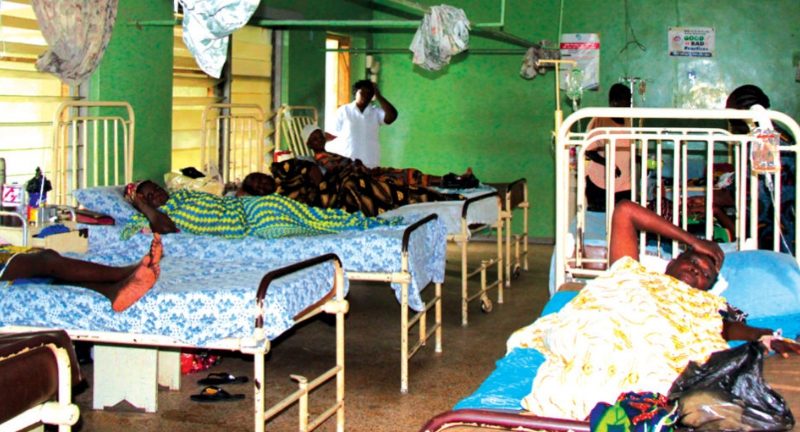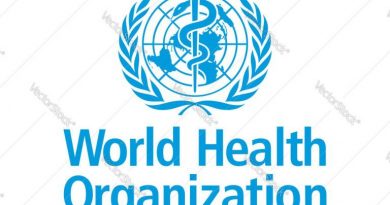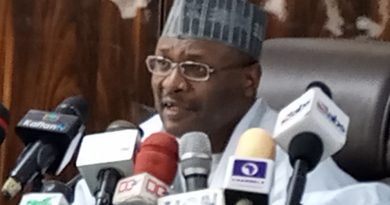HEALTHCARE FOR ALL: Can the new National Health Insurance Authority Act take us to promise land?
Jennifer Nwokedike
The government of Nigeria recently signed the new National Health Insurance Authority (NHIA) Act into law as part of its critical health reform policy for implementing mandatory health insurance coverage for all Nigerian citizens in the quest for universal Health Coverage (UHC). The new Act repeals the National Health Insurance Scheme (NHIS) Act 2004, and gives authority to the administration to promote, regulate and integrate all health insurance schemes in Nigeria, as well as collaborate with private sector in provision of healthcare services.
A prominent element of the NHIA Act is a vulnerable group fund (VGF) in section 25 and 26, to provide subsidy for the purchase of basic minimum package of health service for additional 83 million vulnerable Nigerians. The fund will be disbursed through the Basic Healthcare Provision Fund (BHCPF) gateway, health insurance levy, special Intervention fund, and other investment proceeds, donations, and gifts to the Authority.
The vulnerable group fund established under the new Act is a significant legislative action that is expected to bridge the coverage gap by expanding health insurance coverage to the most vulnerable and disadvantaged group, reduce poverty and improve access to quality healthcare for Nigerians.
At present, out-of-pocket expenditure for health is high at over 75%, and a report from World Bank projects that about 95.1 million Nigerians will be pushed below the poverty line in 2022. In the absence of strong health insurance mechanism for pooling and cost burden sharing for risk management, coupled with the rising cost of healthcare, many Nigerians cannot access basic health care due to inability to pay for treatment cost, pushing them further into poverty and untimely death. Government inadequate funding of the primary health care system has posed major challenge in curbing diseases and responding to emergencies.
Furthermore, the NHIA Act plans to implement an integrated health insurance scheme through strengthened data coordination system, in partnership with other information management organizations in the country. Adopting a robust data network and accountability mechanism with strict adherence to standards will help to address transparency and accountability issues, as well as ensure effective tracking, monitoring so that funds are channeled where it is required. If implemented effectively, the Act will serve as a catalyst to propel Nigeria’s health care financing sources towards progressivity and universal health coverage.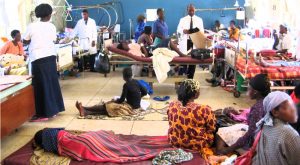
Is the Health System Ready for the UHC drive?
How aptly the new National Health Insurance Authority Act will be implemented is viewed with skepticism, firstly, because of poor government spending on health and limited fiscal space amid other structural and operational issues. Records from the National Bureau of Statistics shows decline in the gross domestic product (GDP) for successive three quarters. In Q1 of 2022, GPD growth slowed at 3.11%, and from 4.03% to 3.98% in Q3 and Q4 of 2021 respectively. The country faces economic recession due to high inflation, accumulation of debts, and rising insecurity situation.
The National Health Account published in 2017 shows that Nigerian government spent only an average of 4.3% of its Gross Domestic Product (GDP) as total health expenditure (THE) from 2012 to 2019, against the commitment of allocating not less than 15% of its overall GDP to health. Compared to other African countries like South Africa and Rwanda, Nigeria government failed to live up to its promise. Amid the COVID era, health investment has seen little increase, with per capita income at $8.5 (N3, 453), which is still far below $86 required to drive UHC coverage. Although the 2022 budget marginally increased to 24% in annual value from N549.8 billion in 2021 to N724 billion (4.2%) in 2022, but taking into account the rising inflation rate https://mnigerianstat.gov.ng/elibrary/read/1241134, and increasing population growth, the increase is not significant.
Does government spending align with its five year target of providing equitable and efficient health financing system?
Government spending on health does not align with the provisions of the Health Financing Policy and Strategy (HFPS) document intended to foster the drive for achieving UHC by 2030. The five strategic objectives of the policy sought to increase financing for health, ensure equity in access, quality and efficient utilization of resources, as well as expanding coverage especially of the poorest to improve financial risk protection.
Unfortunately, total government expenditure on health is inadequate with high recurrent expenditure, leaving over 70% of households to bear the heavy cost of healthcare.
The poor state of the Primary Health Care (PHC) facilities, high dependence on external sources of funding, and poor mechanisms for addressing inefficiencies and leakages in the system, are grey areas that cannot be overlooked. Nigeria still lags behind on its promise of building an equitable and efficient health financing system.
Among the critical indication of the readiness of the country to build a resilient health system is the condition of primary health care and health insurance coverage. For instance, the HFPS stated that the government will ‘improve the coverage of Nigerians on health risk protection mechanisms by 30% by extending health insurance to 50 million Nigerians’ in 2022’, but presently, less than 10% of Nigerians are insured by the National Health Insurance Scheme.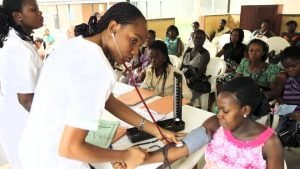
One important question to ask is ‘why hasn’t health insurance enrollment increased significantly despite the huge cost for funding the scheme for close to two decades now?’ The scheme has met with several challenges, from criticisms for lack of transparency and accountability in funds management, to issues of poor administration.
With paucity of fund for health financing, amid decry of the state of the nation’s primary healthcare system, the next question is, ‘should we believe that the Nigerian government will take the implementation of the new NHIA Act seriously?’ despite the government’s failure to fulfill its promises in the HFPS document and the National Health Insurance Scheme’s inability to bring health care closer to the people to fast track progress towards UHC.
In the new NHIA Act, the administration is empowered to “ensure that health insurance is mandatory for every Nigerian and legal resident”, and to partner with state governments for accreditation and re-accreditation of all health facilities for the enforcement of the basic minimum package of health insurance for all Nigerians, across all health insurance schemes including private health insurance schemes.
Making health compulsory is a great policy achievement and a milestone for the UHC pursuit. However, given the current reality that only about 20% of the 30,000 Primary Healthcare facilities (PHCs) across the country are operational and functioning optimally, the plan sounds like jumping the gun.
The cost of undervaluing and neglecting the PHC is huge, and responsible for high patient influx into private hospitals, and the consequential poor satisfaction with the health system. Many Nigerians prefer to access healthcare in private health facilitates, and the main driver for the demand is the deplorable situation of PHC facilities in the country. For the NHIA Act to achieve its mandate, enormous investment in the health sector is required, which necessitates prioritizing health financing, particularly increasing funding to improve the precarious situation of primary health care in Nigeria.
What are the opportunities?
We must seek innovative means of solving the challenges of health care financing in Nigeria to identify robust and stable opportunities for the utilization of primary healthcare system, and bridge identified gaps to improve population health. The NHIA Act encourages equitable access to quality healthcare delivery, but that can only be achieved by reliance on internal and sustainable finance mechanisms for health, strengthening and expanding the weak social protection system in the country.
Similarly, beyond the supply side, the government needs pay equal attention to demand side in healthcare utilization, to create the balance that will improve performance and the quality of health services, with appropriate investment in health promoting education, public enlightenment and sensitization.
The COVID-19 pandemic proves that health is important to every economy and globally, a healthy and productive work force translates to significant GDP gains. The world bank makes the case for a likely $4 return in economy for every $1 invested in health (https:www.who.int/news/item/13-12-2021-investment-1-dollar-per-person-per-year-could-save-7-million-lives-in-low-and-lower-middle-income-countries), thus the need for government to see health as a business, and for health stakeholders, partners and civil society organizations to make a stronger case for health financing through sustained advocacies, political sensitization and lobbying.
Jennifer Nwokedike (jennya4u@yahoo.com)
Good Governance Team (GGT), Abuja

